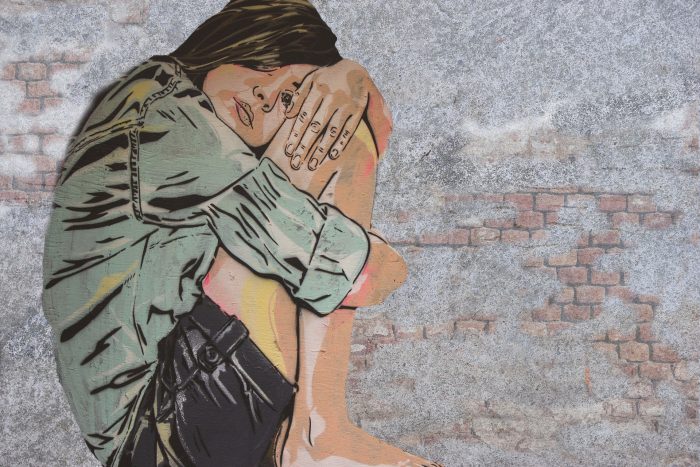I’m not feeling well today.
To be honest, I haven’t felt well all week.
I’d like to smile the way I used to, but I can’t.
There’s a deep sadness within me that I can’t hold without being engulfed by it.
The children inside me are wounded, and no matter how hard I try, I can’t seem to help them. They always cry for their moms, and so do I.
Since I can remember, I’ve wanted a mom—one like Miss Honey from Matilda. Teachers, professors, and therapists have filled this hole in the heart of the little girls inside me, but they’ve never stayed forever.
I’ve tried the parent protocol in therapy and created a mom in my mind, but it’s not the same.
I want a real mom. It’s all I want, and while I know a therapist isn’t going to take me home, I so badly wish one would.
When asked by my therapist about how I feel these days regarding their absence, I always say, “I’m fine.”
I say I’m fine out of fear I’ll be pathologized.
I say I’m fine so I won’t be labeled.
I say I’m fine so not to bother others.
I’m not fine, though, and I haven’t been in a long time. Instead, I cry like the babies in the Spitz studies who can’t find their moms.
I read often: “Trauma is not your fault, but healing is your responsibility.”
To be honest, I don’t like this comment.
I don’t believe healing is only the responsibility of the person carrying the trauma.
I believe it’s a community responsibility to hold space for each other, gently guide the wounded down healthy paths, and to stand up to injustice.
No, I do not believe healing is just my responsibility.
It is all of our responsibility to help each other other out as neighbors, friends, colleagues, and strangers.
I’ve been given a host of labels by various therapists, psychologists, and psychiatrists, such as depression, anxiety, transition disorder, PTSD, CPTSD, Borderline, reactive attachment disorder, and DID.
Rather than help me, though, these labels have only caused me to hurt more.
I am a highly sensitive person, a PhD student, and a gentle soul.
I love people and do my very best to keep smiling.
I’m hurting, though, and no matter how much I meditate, write, and spend time with friends, this mother wound is still there.
I was recently introduced to an amazing group called Drop the Disorder, a group of individuals in the United Kingdom challenging the culture of psychiatric diagnoses.
I was surprised to find thousands of other female trauma survivors like me who were also hurt by being labeled by mental health providers.
Many of them, like myself, were labeled with a personality disorder, and they, like myself, also had traumatic childhoods.
I don’t believe it helps female trauma survivors to be labeled as having a “personality disorder” because they have a fear of abandonment. It does nothing for this poor population but pathologize their dysregulation and fear of abandonment that is often a direct result of their histories.
It’s really time that we stop seeing these individuals as the problem and start considering the multiple systems that have shaped them.
I hope we begin to look at those with fear of abandonment and emotional dysregulation with compassion.
Nobody likes to be abandoned, and for those who had chaotic childhoods, losing people we care a lot about, especially therapists that show us love, is really, really hard.
Be gentle toward those who had challenging childhoods and may not have had the kind of loving relationship they would have liked with their parents. It’s human nature to want this.
We don’t need to abandon these clients to help them heal.
~









Read 11 comments and reply